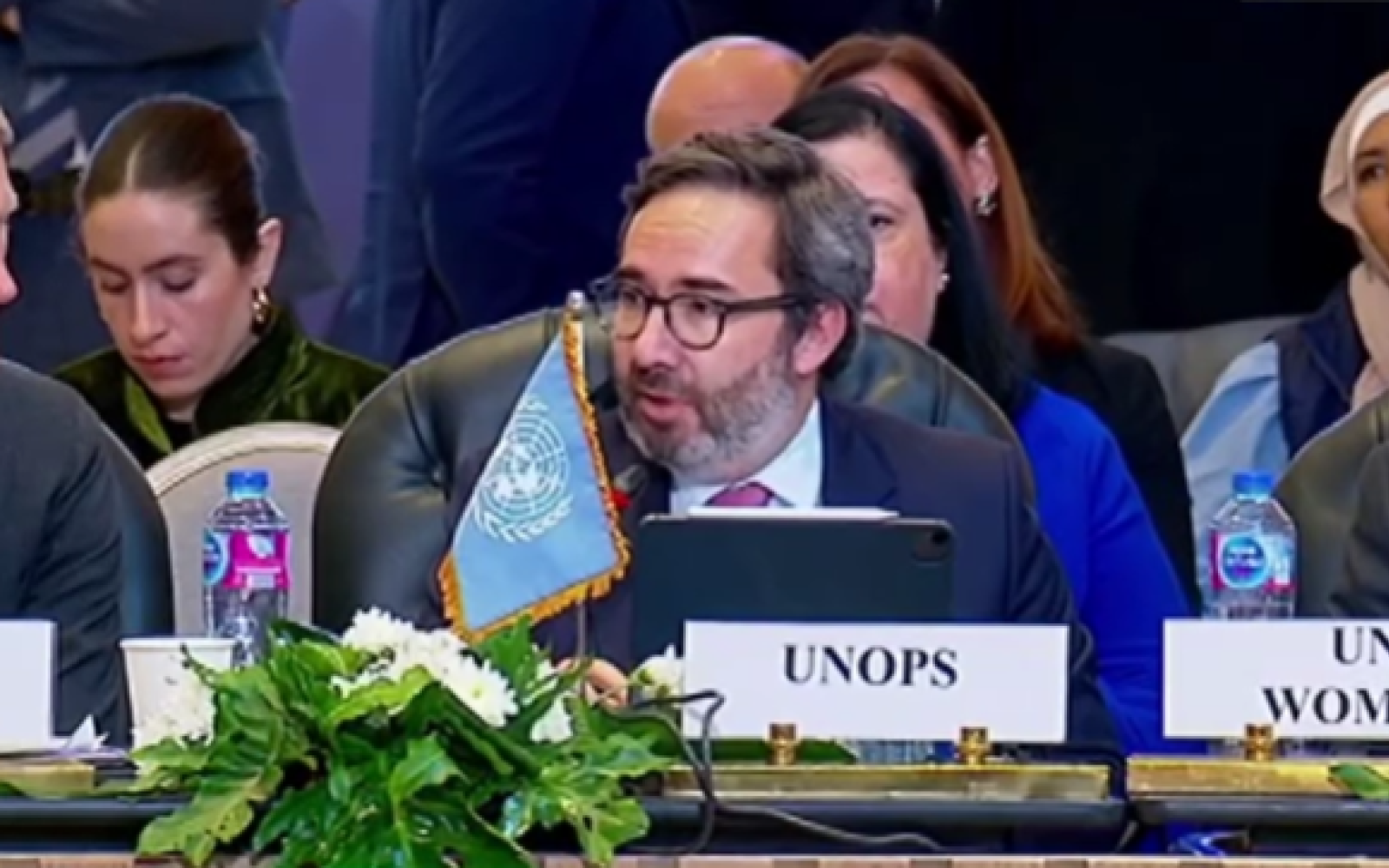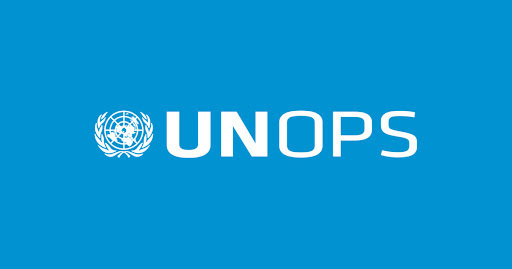The United Nations Office for Project Services (UNOPS)
Statement by UNOPS Executive Director to the Security Council on UN 2720 Mechanism for Gaza
Statement by Jorge Moreira da Silva, UN Under-Secretary-General and UNOPS Executive Director to the UN Security Council, 9725th meeting - 16 September 2024.
[Check against delivery]
Mr. President,
Thank you for the invitation today to provide the Council with a briefing on the operationalization of the UN 2720 Mechanism for Gaza.
Firstly, I would like to take this opportunity to thank the Senior Humanitarian and Reconstruction Coordinator, Ms. Kaag, for her leadership and tireless efforts. These have not only enabled the activation of the mechanism, but have also been crucial in bringing the key stakeholders together on the critical political decisions that enable our work and the work of our humanitarian colleagues.
UNOPS is committed to supporting the mandate of the Senior Humanitarian and Reconstruction Coordinator, along with our other efforts to enable the work of the UN system and humanitarian responders in Gaza. In January, during my visit to Gaza, I spoke to colleagues about the truly challenging environment - and its impact on their work.
When UNOPS was asked by the Secretary-General to support Ms. Kaag’s mandate this past December, we delivered a design of the mechanism that is meant to:
Deliver a single, comprehensive humanitarian aid supply chain management system for Gaza - from the point when humanitarian partner indicates an intention to send aid, to the point of delivery in Gaza;
Address the unpredictability of pipelines, delays at the screening points, multiple inspections and transloading points, and lack of a comprehensive live tracking of humanitarian aid flows into Gaza; and,
Build confidence and transparency in the flow of humanitarian aid into Gaza, not only in terms of speed and volume, but also in terms of prioritization.
Mr. President, since May of this year, UN 2720 Mechanism has been running the integrated database covering humanitarian consignments going through Cyprus, and since June those along the Jordan corridor. It has also captured consignments being sent from the West Bank and from inside Israel.
The database moves away from counting trucks and provides the capacity to look at actual supplies entering Gaza, compared to the identified needs. It is publicly accessible to anyone who wishes to send humanitarian aid to Gaza.
Since its activation, 229 humanitarian aid consignments have requested clearance through the 2720 UN Mechanism database; 175 consignments have been approved, 101 have been delivered, 17 are pending clearance, and 37 have been rejected.
This translates into more than 22 thousand metric tonnes of humanitarian aid cargo delivered to Gaza through the facilitation of the mechanism, out of which: over 20 thousand metric tonnes of food and nutrition consignment, close to 1000 metric tonnes of shelter consignments, close to 400 metric tonnes of WASH supplies, over 170 metric tonnes of medical aid, close to 50 metric tonnes of protection supplies, and smaller consignments of other humanitarian aid supplies.
These figures are also publicly available on the mechanism’s live dashboard which was launched earlier last week.
The consignments were primarily delivered through the Jordan Corridor - the direct route from Jordan to Gaza that was formalized and regularized under the mechanism - to provide much needed predictability and regularity, and to address the backlog challenges that accompany convoys undergoing multiple inspection and transloading points. Humanitarian aid consignments that are delivered through the Jordan Corridor undergo a single inspection point in Jordan, and a single transloading point in Gaza (compared to 3 inspection and 4 transloading points on the back to back route).
A smaller portion of the above consignments were delivered through the Cyprus Corridor, which represents a vital, supplementary route for delivering humanitarian aid to Gaza. It is not intended to replace or divert attention from existing land or sea corridors but rather to enhance overall capacity. Responding to donor requests for a UN-led and humanitarian-focused approach, UNOPS stands ready to address the current logistical challenges for the Cyprus corridor by offering an end-to-end solution, ensuring the coordinated, efficient and transparent delivery of aid.
In order to support the regularization of the corridors under the mechanism, UNOPS has deployed 14 international monitors to Cyprus and Jordan. They verify the humanitarian nature of each consignment, facilitate the approval for the consignments to proceed to Gaza, and track the consignment from their point of origin until they are handed over to the final consignee in Gaza for onward delivery.
This very mechanism fosters confidence building among all and provides transparency, informing all of us that what was sent to Gaza, indeed made its way to its final destination. For consignments that are not permitted - the mechanism requires a justification from the concerned parties. Together with the Office of the Senior Coordinator, we continue to call for more items and consignors to be allowed to enter Gaza.
Eleven of our international monitors are also ready to deploy inside Gaza in order to reinforce this important verification and tracking mechanism, as an additional enabler of our collective efforts to accelerate and increase the amount of humanitarian aid reaching the civilian population in Gaza.
Regarding the Egypt corridor: over the past 11 months, the Egyptian route has served as a vital lifeline for delivering aid to the people of Gaza. We are working closely with the Egyptian authorities to fully integrate this route into the 2720 Mechanism. Initial approval has been secured, and my team is in Cairo this week to finalize the integration process. Once completed, the 2720 Mechanism will provide a comprehensive, real-time overview of all humanitarian cargo entering Gaza from every supply route. This will enable better prioritization, tracking, and monitoring of relief efforts right up to the point of delivery.
Through the joint 2720 database, we will strengthen coordination and efficiency, ensuring that aid reaches those who need it most swiftly and effectively.
Mr. President, as part of the UN 2720 Mechanism for Gaza, we have committed to support the full operational capacity of each corridor and of the humanitarian community inside Gaza. In this regard, I would like to reflect on a number of ongoing initiatives that aim to do just that:
UNOPS is procuring 280 trucks for the Jordan Corridor, constructing 10 additional warehousing spaces for the Jordan Hashemite Charity Organization, and establishing two truck holding areas at the King Hussein Bridge crossing and the inspection site in Jordan;
In addition, UNOPS is procuring 38 trucks for use by the humanitarian community inside Gaza, in order to enable the delivery of the humanitarian aid consignments arriving via the different corridors.
UNOPS has also procured the necessary armored vehicles, communications and other security equipment that will enable the operational capacity of the mechanism’s international monitors inside Gaza, without exerting pressure on already limited resources of the rest of the humanitarian community.
Our progress toward design, establishment, and operationalization of the mechanism would not have been possible without the generous and dedicated support of the Member States who have contributed financially to UNOPS in support of the mechanism. Here, I would like to specifically recognize the governments of Australia, Denmark, Estonia, the Netherlands, the United Arab Emirates and the United States, and the Minderoo Foundation, as well as the governments of Canada and Germany who have pledged additional contributions.
I would also like to thank the Member States and our local partners who are enabling the operations of the Mechanism on the ground.
Mr President, we cannot overemphasize the challenges of delivering humanitarian response in Gaza right now. The design and the implementation of the mechanism matter immensely - and we remain committed to excellence. Yet the effective delivery of aid at the scale required will simply not be possible without political will, necessary security and safety guarantees, and an enabling environment.
As we all reflect on the situation in front of us - one that has challenged our fundamental norms and values - the importance of reaching an immediate ceasefire and the immediate and unconditional release of all hostages cannot be overstated.
In the face of the human tragedy unfolding in Gaza, we have a collective and urgent responsibility to take action. Allow me here to also emphasize the critical and irreplaceable role that UNRWA plays in Gaza, as the key implementer of our collective will.
Along with the rest of the UN family, UNOPS is determined to stay and deliver for the people of Gaza, both to respond to immediate humanitarian needs, and to support the immense recovery and reconstruction efforts that are so desperately needed.
Thank you.











